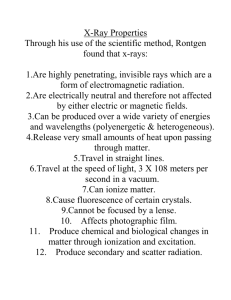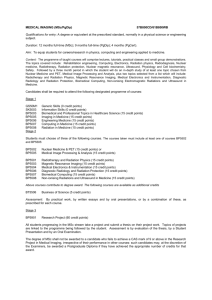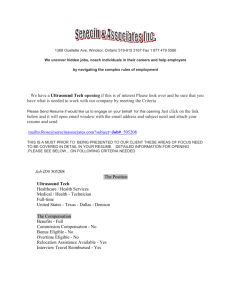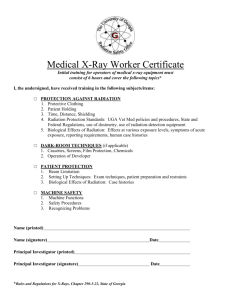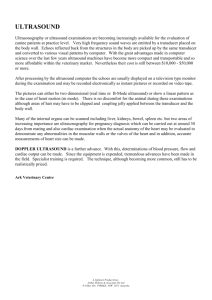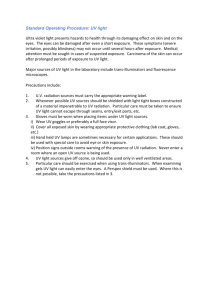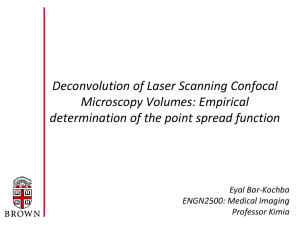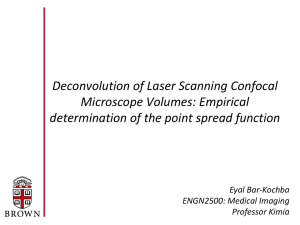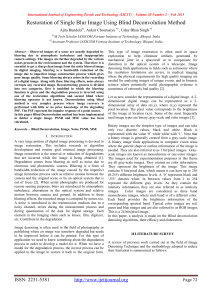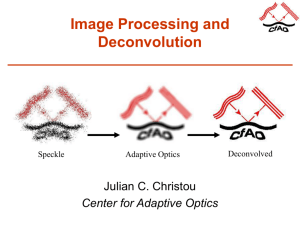talk5-6 - University of Toronto
advertisement
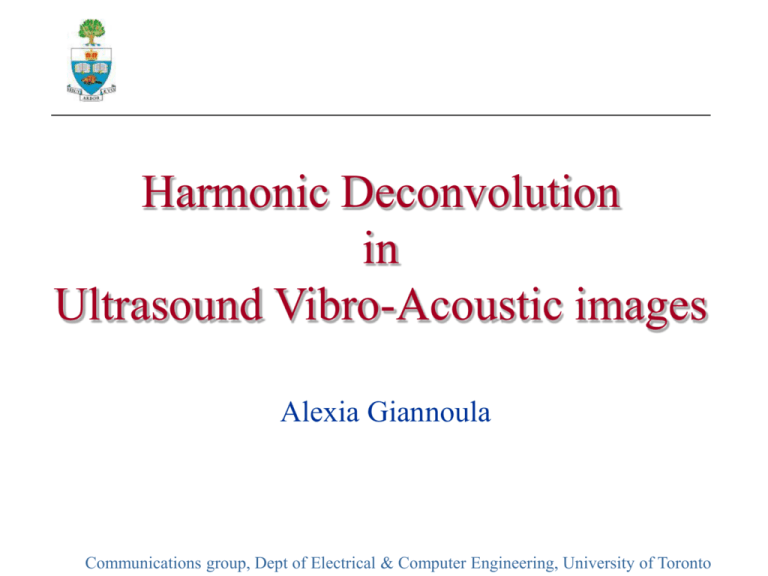
Harmonic Deconvolution in Ultrasound Vibro-Acoustic images Alexia Giannoula Communications group, Dept of Electrical & Computer Engineering, University of Toronto Elastography Changes in elastic properties of soft tissue have been often attributed to the presence of disease or abnormal structures Most techniques in elasticity imaging or elastography involve: » tissue excitation by an external or internal force » detection of the tissue motion or displacement • Using Ultrasound, magnetic resonance (MR), acoustic/optical methods Hard inclusion/tumor: smaller displacement B-mode elastogram Acoustic Radiation Force A way to excite directly a target inside the body is through the use of the radiation force of ultrasound Advantages: » Non-invasive (external) excitation » Highly-localized radiation stress field (leads to increased precision) The radiation force mainly depends on: » The type of propagating medium (lossless/lossy, viscoelastic fluid etc.) » Mechanical properties of the target object » Geometry of the target object Ultrasound Vibro-Acoustography (USVA) 1. 2. 3. 4. 5. Two CW beams at slightly different frequencies interfere in the focal zone A modulated ultrasound field is generated at the “beat” frequency Df (low) A highly-localized dynamic (oscillating) radiation force is produced In response to the force (stress field), the object vibrates at the same Df Vibration acoustic emission Detected by hydrophone/laser vibrometer USVA • Detection sensitivity: few nanometers • Image resolution: PSF~700μm X-Ray Photo Proposed Deconvolution Scheme (I) Usually a blur is observed around the object » Due to the sidelobe effects of the system PSF Apply separate deconvolution to the fundamental and second harmonic signals recorded by the hydrophone Higher-harmonics arise due to tissue nonlinearities » Harmonic imaging better resolution and less noise/blur Fundamental Second harmonic Proposed Deconvolution Scheme (II) First and Second-harmonic image formation: ? ξ(r1) object function Each PSF hi represents the response of a point target to the radiation force Fi (i=1,2) Find F1, F2 Form h1, h2 Filter each χ1(r), χ2(r) with the inverse PSFs Fuse the outputs based on the different attenuations: ξ = α1 ξ1 + α2 ξ2 Obtain 2 deblurred images ξ1, ξ2
